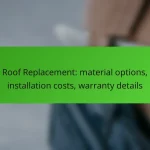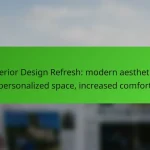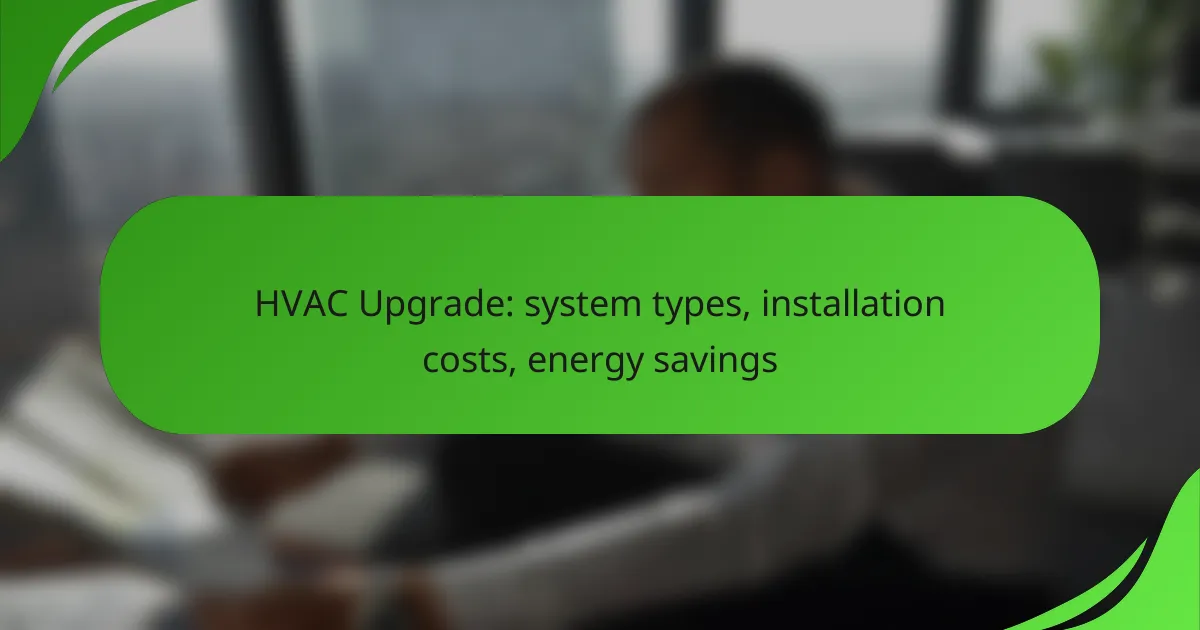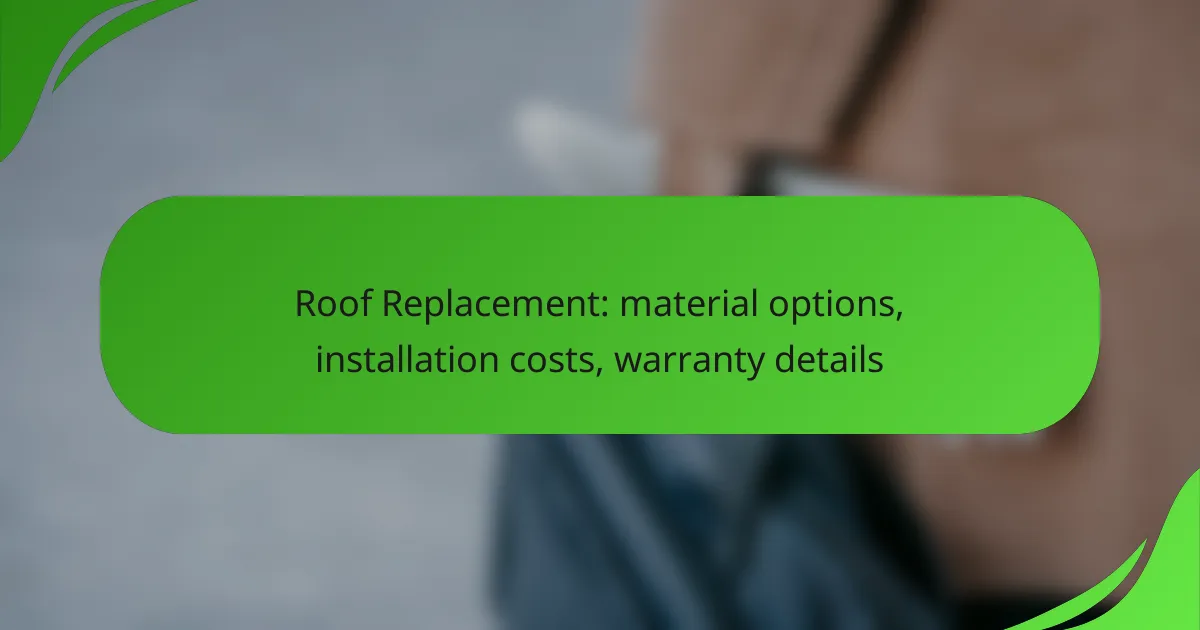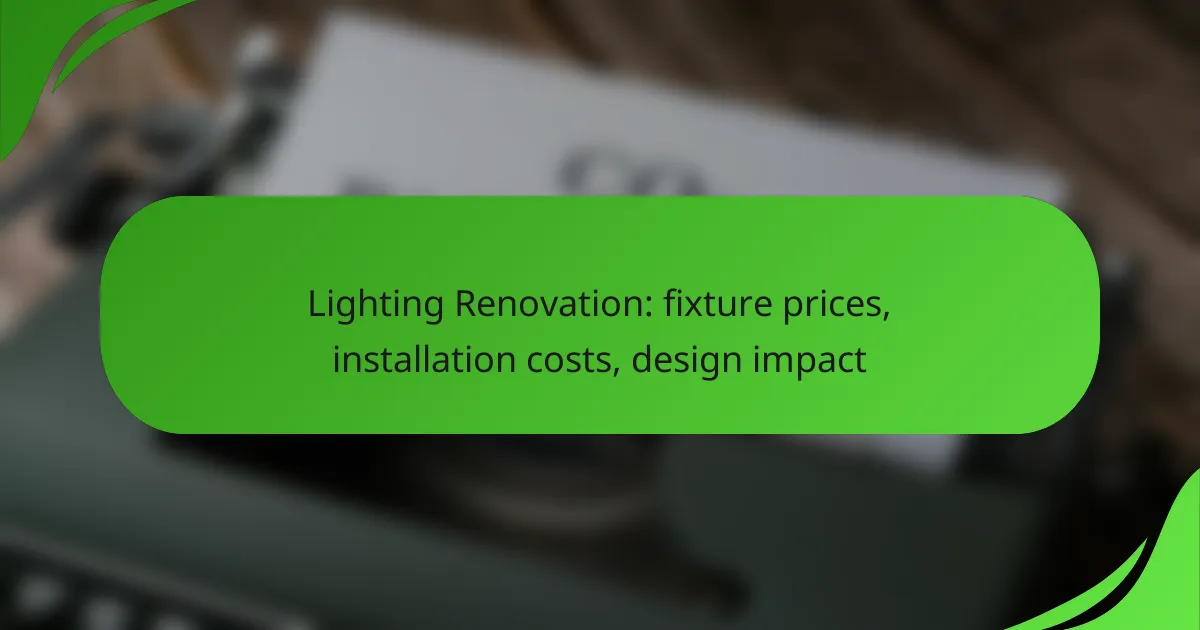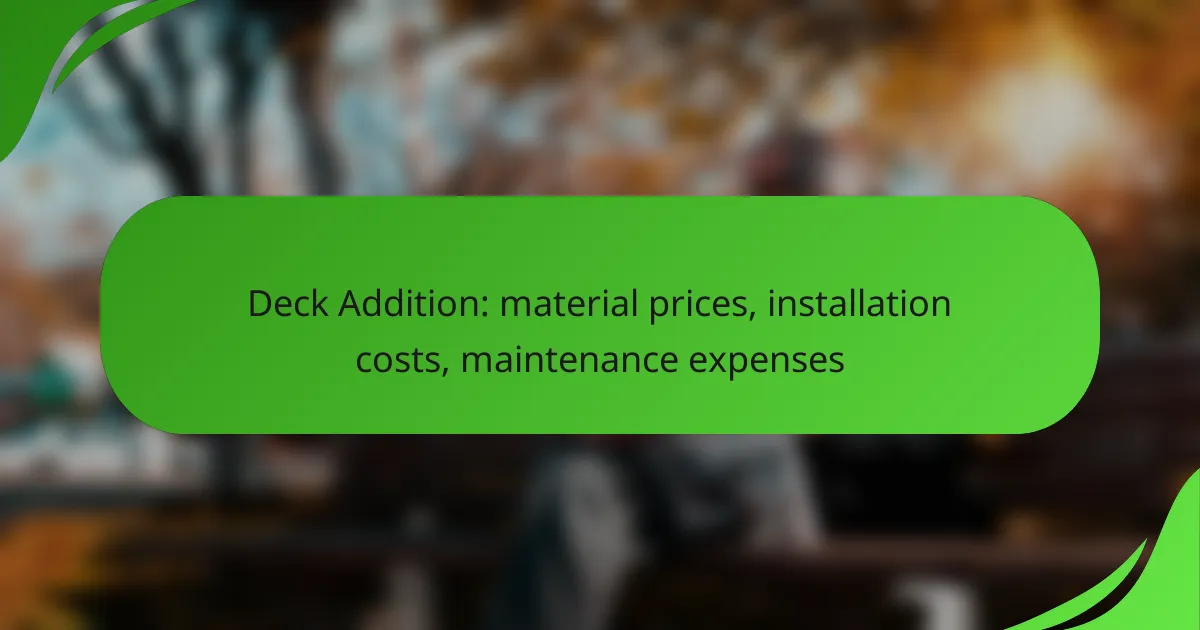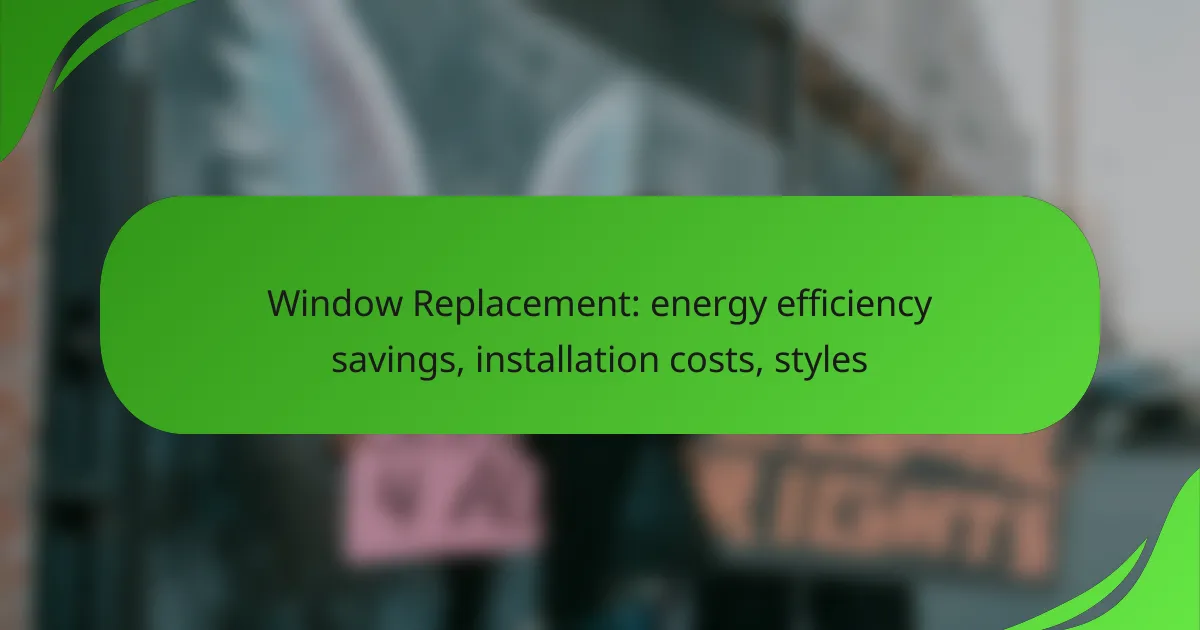Upgrading your HVAC system can greatly enhance your home’s comfort and efficiency. With various types available, such as central air conditioning, heat pumps, and geothermal systems, it’s essential to consider installation costs and energy savings. Investing in a modern system can lead to significant reductions in utility bills and a smaller environmental impact.
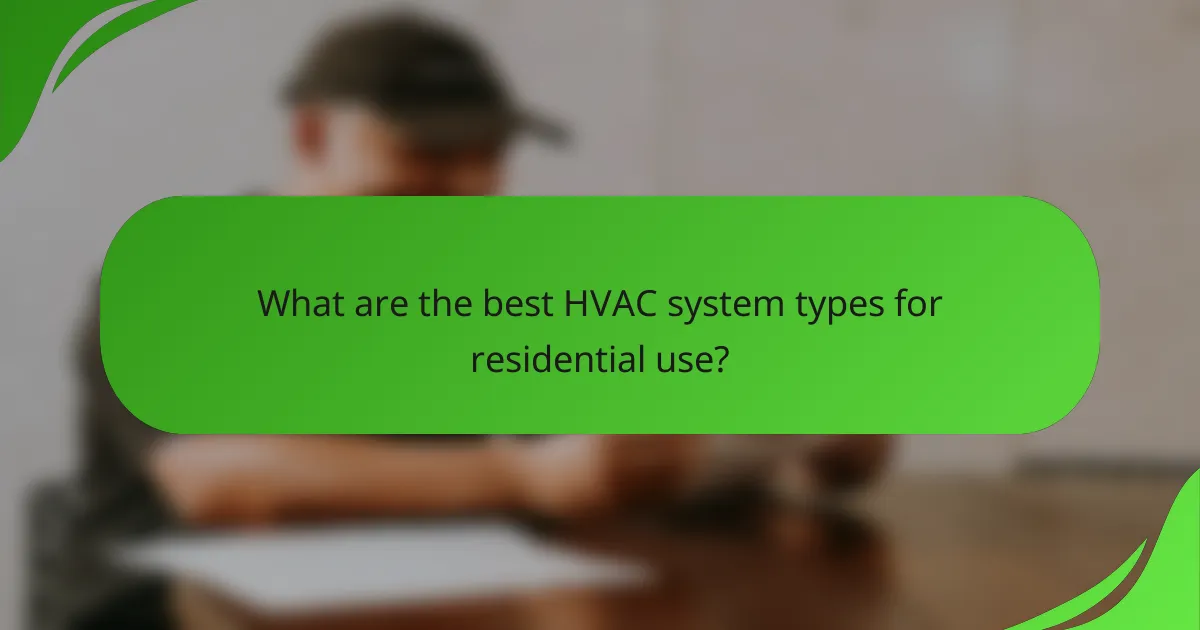
What are the best HVAC system types for residential use?
The best HVAC system types for residential use include central air conditioning, heat pumps, ductless mini-split systems, geothermal systems, and hybrid systems. Each type has unique features, installation costs, and energy efficiency, making them suitable for different home sizes and climates.
Central Air Conditioning
Central air conditioning systems use a network of ducts to distribute cool air throughout the home. They are effective for larger residences and can maintain consistent temperatures across multiple rooms.
Installation costs for central air conditioning typically range from several thousand to over ten thousand USD, depending on the system’s size and complexity. Regular maintenance is essential to ensure optimal performance and longevity.
Heat Pumps
Heat pumps are versatile systems that can provide both heating and cooling by transferring heat rather than generating it. They are particularly efficient in moderate climates and can significantly reduce energy bills.
Installation costs for heat pumps generally range from three thousand to eight thousand USD. Homeowners should consider the local climate, as heat pumps may be less effective in extreme temperatures.
Ductless Mini-Split Systems
Ductless mini-split systems consist of an outdoor compressor and one or more indoor air-handling units. They are ideal for homes without existing ductwork and allow for zone control, enabling different areas to be heated or cooled independently.
Installation costs for ductless systems can range from two thousand to five thousand USD per zone. These systems are energy-efficient and can provide significant savings on utility bills, especially in smaller homes or additions.
Geothermal Systems
Geothermal systems utilize the earth’s stable underground temperature to heat and cool homes. They are highly efficient and can lead to substantial energy savings over time.
However, installation costs for geothermal systems are typically higher, ranging from ten thousand to thirty thousand USD, due to the need for underground loops. They are best suited for homeowners looking for long-term savings and environmental benefits.
Hybrid Systems
Hybrid systems combine a traditional furnace with a heat pump, allowing homeowners to switch between energy sources based on efficiency and cost. This flexibility can lead to lower energy bills and increased comfort.
Installation costs for hybrid systems usually range from five thousand to fifteen thousand USD. Homeowners should evaluate their local energy prices to determine the most cost-effective operation strategy.
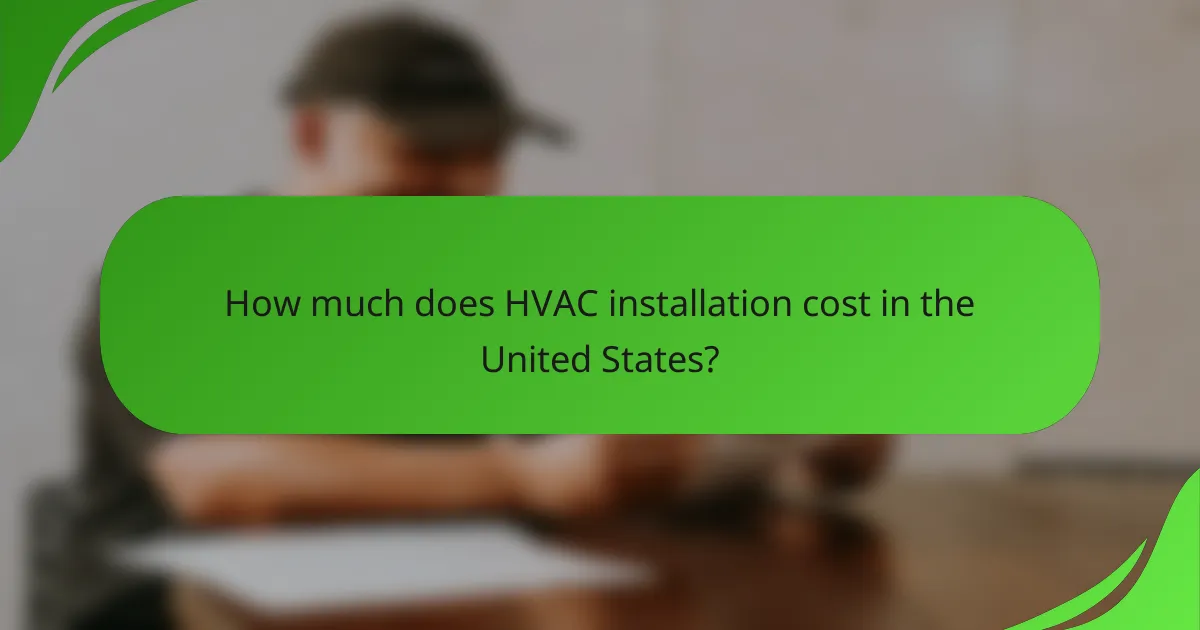
How much does HVAC installation cost in the United States?
The cost of HVAC installation in the United States typically ranges from several thousand to over ten thousand dollars, depending on various factors such as system type, size, and complexity of installation. Homeowners should budget accordingly and consider both initial costs and long-term energy savings when upgrading their HVAC systems.
Average Installation Costs
On average, HVAC installation costs can vary significantly, generally falling between $3,000 and $12,000. This range includes both equipment and labor, with central air conditioning systems often costing more due to their complexity. It’s essential to obtain multiple quotes from licensed contractors to ensure competitive pricing.
Factors Affecting Costs
Cost Comparison by System Type
Different HVAC systems come with varying installation costs. For instance, a basic split system may cost around $3,500 to $7,500, while a geothermal heat pump can range from $10,000 to $25,000 due to its complex installation requirements. Understanding these differences helps homeowners make informed decisions based on their budget and heating/cooling needs.
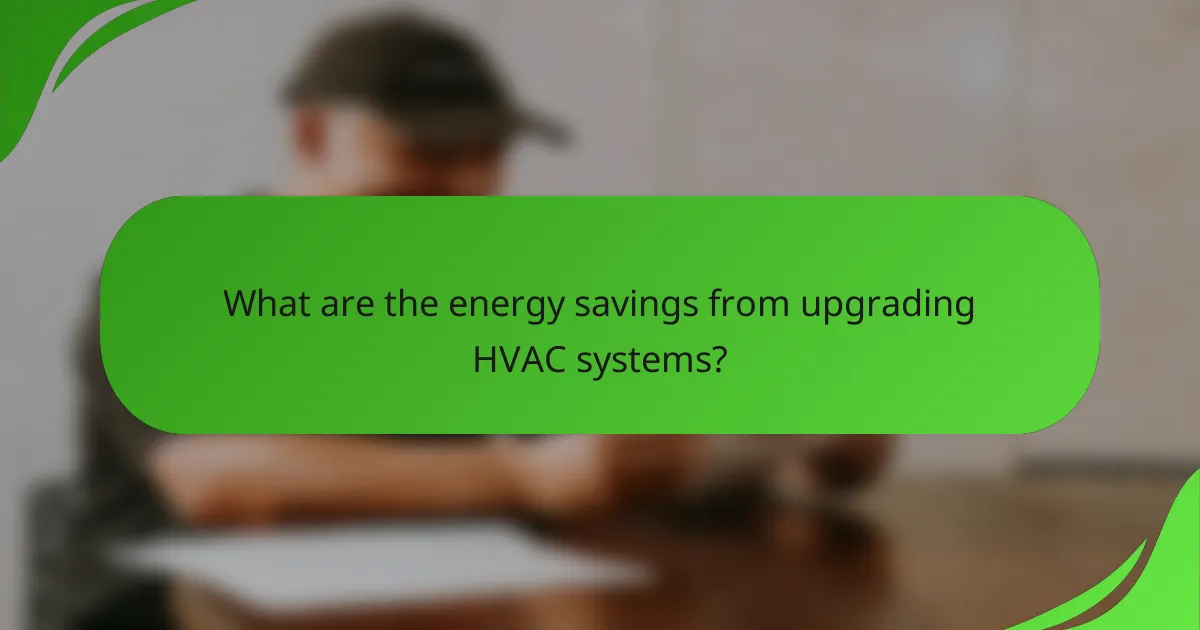
What are the energy savings from upgrading HVAC systems?
Upgrading HVAC systems can lead to significant energy savings, often ranging from 10% to 30% depending on the efficiency of the new system compared to the old one. Enhanced energy efficiency not only reduces utility bills but also contributes to a lower carbon footprint.
Energy Efficiency Ratings
Energy efficiency ratings, such as SEER (Seasonal Energy Efficiency Ratio) for cooling systems and AFUE (Annual Fuel Utilization Efficiency) for heating systems, provide a clear measure of a system’s performance. Higher ratings indicate better efficiency, meaning more cooling or heating for less energy consumption. For example, a system with a SEER rating of 16 is typically more efficient than one rated at 13.
Potential Savings Over Time
When considering potential savings, it’s essential to factor in both reduced energy bills and maintenance costs. Over a decade, homeowners can often save thousands of dollars by switching to a more efficient HVAC system. Additionally, newer systems may require less frequent repairs, further contributing to long-term savings.
Incentives for Energy-Efficient Systems
Many regions offer incentives for upgrading to energy-efficient HVAC systems, including tax credits, rebates, and financing options. These incentives can significantly lower the initial investment cost, making it more affordable to switch to a high-efficiency model. Homeowners should check local utility programs and government websites to identify available incentives that can enhance their savings.
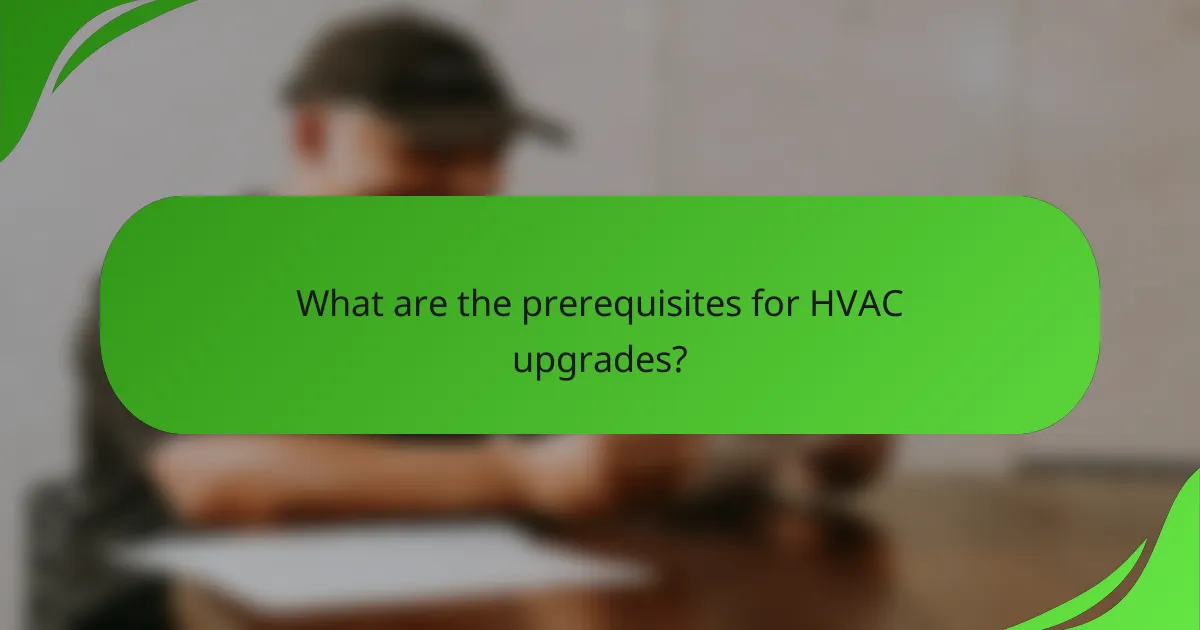
What are the prerequisites for HVAC upgrades?
Before upgrading your HVAC system, you need to assess your home’s requirements and ensure compliance with local building codes. This preparation helps optimize performance and efficiency while avoiding legal issues.
Home Assessment Requirements
A thorough home assessment is crucial for determining the right HVAC system for your space. This includes evaluating the size of your home, insulation quality, and existing ductwork. An energy audit can identify areas for improvement and help you choose a system that meets your needs.
Consider factors such as the number of rooms, square footage, and local climate when selecting an HVAC system. For instance, a larger home may require a multi-zone system, while a smaller space might benefit from a compact unit. Engaging a professional can provide valuable insights into the best options for your situation.
Local Building Codes
Compliance with local building codes is essential for any HVAC upgrade. These regulations ensure that installations meet safety and efficiency standards. Check with your local authorities or a licensed contractor to understand the specific codes applicable in your area.
Common requirements may include permits for installation, adherence to energy efficiency standards, and proper ventilation. Failing to comply can result in fines or the need for costly modifications later. Always verify that your chosen system and installation methods align with local regulations to avoid complications.

How to choose the right HVAC system for your home?
Choosing the right HVAC system involves assessing your home’s specific needs, including size, layout, and local climate. A well-suited system can enhance comfort, improve energy efficiency, and reduce long-term costs.
Evaluating Home Size and Layout
The size and layout of your home significantly influence the type of HVAC system you should select. Larger homes may require multi-zone systems or multiple units to ensure even heating and cooling, while smaller spaces might benefit from compact systems.
Measure your home’s square footage and consider its layout, including the number of floors and room configurations. A general rule is that you need about 20 BTUs per square foot of living space, but this can vary based on insulation and window types.
Understanding Climate Considerations
Your local climate plays a crucial role in determining the best HVAC system for your home. In warmer regions, air conditioning systems are essential, while colder areas may require robust heating solutions.
Consider the seasonal temperature extremes in your area. For example, homes in northern climates may benefit from a heat pump with a backup furnace, while those in southern regions might prioritize high-efficiency air conditioning units. Additionally, check local energy efficiency regulations and incentives that could impact your choice.
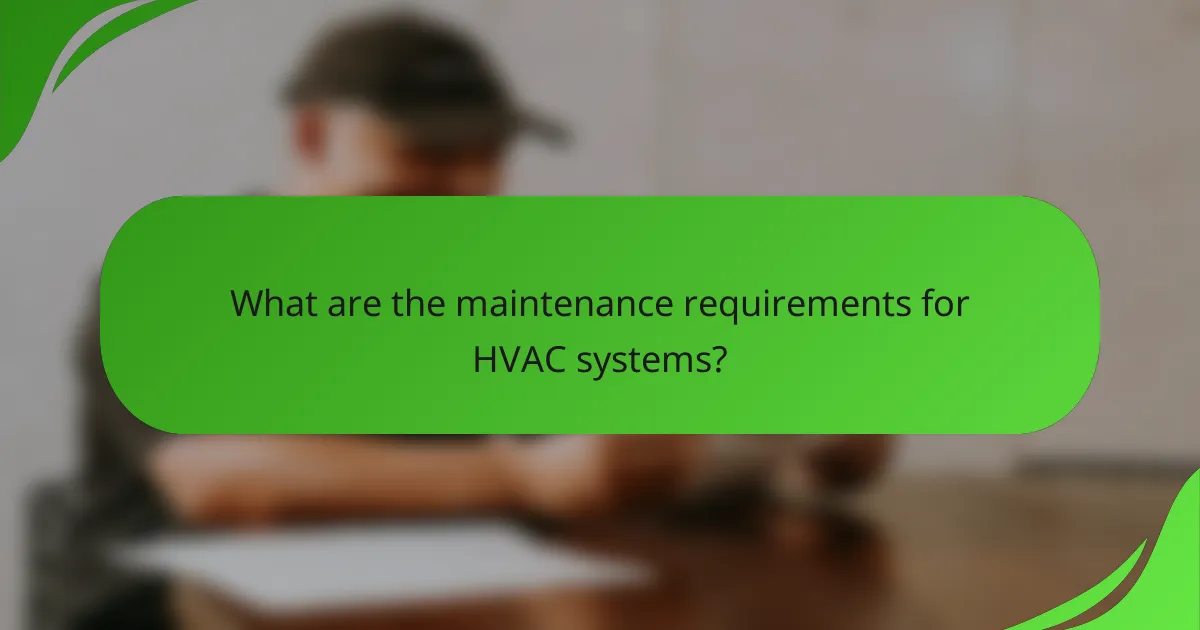
What are the maintenance requirements for HVAC systems?
HVAC systems require regular maintenance to ensure optimal performance and longevity. Key tasks include filter changes, system inspections, and cleaning components to prevent inefficiencies and costly repairs.
Regular Filter Changes
Changing air filters is crucial for maintaining HVAC efficiency. Filters should typically be replaced every one to three months, depending on usage and the type of filter. A clogged filter can restrict airflow, leading to increased energy consumption and wear on the system.
Seasonal Inspections
Conducting seasonal inspections helps identify potential issues before they escalate. A professional technician should check the system’s refrigerant levels, electrical connections, and overall functionality at least once a year, ideally before peak heating or cooling seasons.
Cleaning and Maintenance of Components
Cleaning components like coils and ducts is essential for system efficiency. Dirty coils can reduce heat exchange efficiency, while clogged ducts can lead to uneven heating or cooling. Regular cleaning can enhance airflow and improve indoor air quality.
Monitoring System Performance
Monitoring the performance of your HVAC system can help catch problems early. Homeowners should be aware of unusual noises, fluctuating temperatures, or increased energy bills as signs that maintenance may be needed. Keeping a maintenance log can also help track service history and performance trends.
